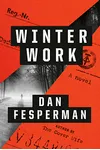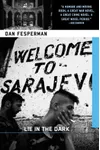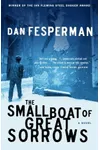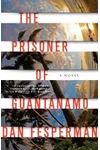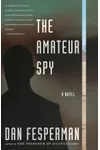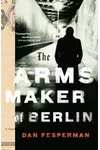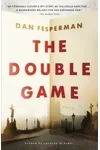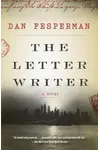Picture a storyteller who spun tales of espionage and intrigue from the ashes of war-torn cities—meet Dan Fesperman! This American author, born in 1955, transformed his globe-trotting journalism career into a thrilling legacy of suspense novels. With a knack for blending real-world geopolitics with heart-pounding narratives, Fesperman has captivated readers and critics alike, earning prestigious awards like the John Creasey Memorial Dagger.
From Sarajevo’s sniper alleys to Berlin’s crumbling Wall, Fesperman’s stories pulse with authenticity, drawing from his years as a foreign correspondent. Ready to dive into a world where spies and secrets reign supreme? Let’s explore the life and works of this master of literary thrillers!
The Making of Dan Fesperman
Born on September 15, 1955, in Charlotte, North Carolina, Dan Fesperman grew up with a curiosity for the world. A proud Tar Heel, he graduated from the University of North Carolina at Chapel Hill in 1977, setting the stage for a dynamic journalism career. Fesperman’s reporting for The Baltimore Sun took him to thirty countries and three war zones, including Bosnia and Afghanistan. These experiences, steeped in conflict and complexity, became the bedrock of his fiction. Trading newsrooms for novels, he began crafting stories that echoed the chaos and moral ambiguity he witnessed firsthand.
Dan Fesperman’s Unforgettable Stories
Fesperman’s novels are a masterclass in suspense, weaving intricate plots with richly drawn characters. His debut, Lie in the Dark (1999), introduced Vlado Petric, a Sarajevo detective navigating murder amidst war’s chaos. The novel’s gritty realism won the Crime Writers’ Association’s John Creasey Memorial Dagger. Its sequel, The Small Boat of Great Sorrows (2003), earned the Ian Fleming Steel Dagger, following Petric’s exile in Berlin as he tackles a mission for the International War Crimes Tribunal.
Beyond the Vlado Petric series, Fesperman’s standalone novels shine. The Prisoner of Guantánamo (2006), a Hammett Award winner, explores conspiracy at the infamous detention camp, while Winter Work (2022) dives into post-Berlin Wall espionage with CIA agent Claire Saylor. Fesperman’s style—taut, atmospheric, and morally complex—reflects his journalistic roots, grounding thrilling plots in real-world tensions. His settings, from Cold War Berlin to modern Dubai, immerse readers in a shadowy world of spies and secrets.
Fesperman’s ability to humanize spies and soldiers sets him apart. His characters grapple with loyalty, betrayal, and the personal toll of espionage, making each story a thought-provoking journey. Critics, including The New York Times, praise his meticulous research and vivid storytelling, cementing his place in the thriller genre.
Why Dan Fesperman Matters
Dan Fesperman’s impact lies in his ability to transform historical and geopolitical events into gripping human dramas. His novels don’t just entertain—they illuminate the ethical dilemmas of espionage and the ripple effects of global conflict. By drawing on his war-zone experiences, Fesperman offers readers a window into worlds rarely seen, earning accolades like the Barry Award and a loyal following among thriller fans. His work resonates with those who crave intelligent, character-driven stories that challenge assumptions about power and justice.
From inspiring aspiring writers to redefining spy fiction for a post-9/11 era, Fesperman’s legacy is one of authenticity and insight. His novels remind us that behind every headline lies a story of human struggle and resilience.
- Born: September 15, 1955, Charlotte, North Carolina
- Key Works: Lie in the Dark, The Small Boat of Great Sorrows, The Prisoner of Guantánamo, Winter Work
- Awards: John Creasey Memorial Dagger (1999), Ian Fleming Steel Dagger (2003), Hammett Award (2006), Barry Award (2019)
- Fun Fact: Fesperman lives near Baltimore with his wife, journalist Liz Bowie, and remains a diehard UNC Tar Heel fan.
Snag Winter Work or Lie in the Dark and dive into Dan Fesperman’s thrilling world of spies, secrets, and suspense!

